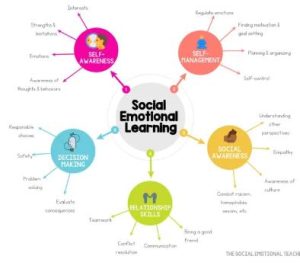What Are Effective Self-Awareness Strategies?
Self-awareness is the foundation for personal and professional growth. Being aware of your thoughts, emotions, and behaviors helps you understand how to navigate complex situations and relationships. Here are some effective strategies to help you improve your self-awareness.

1. Reflection and Journaling
Regular self-reflection allows you to understand your responses to different situations. Journaling amplifies this by offering a record of your thoughts, emotions, and actions. Writing things down provides insights that often go unnoticed in the day-to-day hustle. By consistently reflecting, you can identify patterns and work on behaviors that hinder growth.
2. Seeking Honest Feedback
Constructive feedback from trusted colleagues, friends, or mentors provides an external perspective. It’s crucial to be open to this feedback and use it to identify blind spots. Consider implementing 360-degree feedback assessments, where input comes from various people who interact with you in different settings.
3. Mindfulness and Meditation
Mindfulness is about staying present and observing your thoughts without judgment. Meditation helps strengthen this practice, offering clarity of thought and reducing emotional reactivity. Studies have shown that even a few minutes of meditation daily can significantly enhance focus and emotional control.
4. Personality Assessments
Personality assessments like the Myers-Briggs Type Indicator (MBTI) or the Big Five Personality Test provide valuable insights into your intrinsic traits and tendencies. Understanding these aspects helps you tailor your goals and behavior in alignment with your core personality.
5. Goal Setting and Tracking
Setting goals is effective for self-awareness because it forces you to clarify what matters most. Tracking your progress helps you gauge whether your actions align with those goals. Review your progress periodically and adjust strategies that are not delivering desired outcomes.
6. Identify Emotional Triggers
Emotional triggers often lead to impulsive reactions. By recognizing situations that cause stress, anger, or sadness, you can develop healthier responses. Keeping a log of these triggers and how you handled them will help you create strategies for future challenges.
7. Continuous Learning
Embrace lifelong learning through books, courses, or seminars. The process of learning exposes you to new ideas and different perspectives, helping you rethink assumptions and stereotypes that might limit your growth.
For a deeper dive into practical self-awareness strategies, check out self awareness strategies.
Bringing It All Together
Implementing these strategies in your daily routine will make self-awareness an ongoing journey rather than a one-time goal. Each strategy complements the others, giving you a comprehensive framework to understand and improve yourself over time.